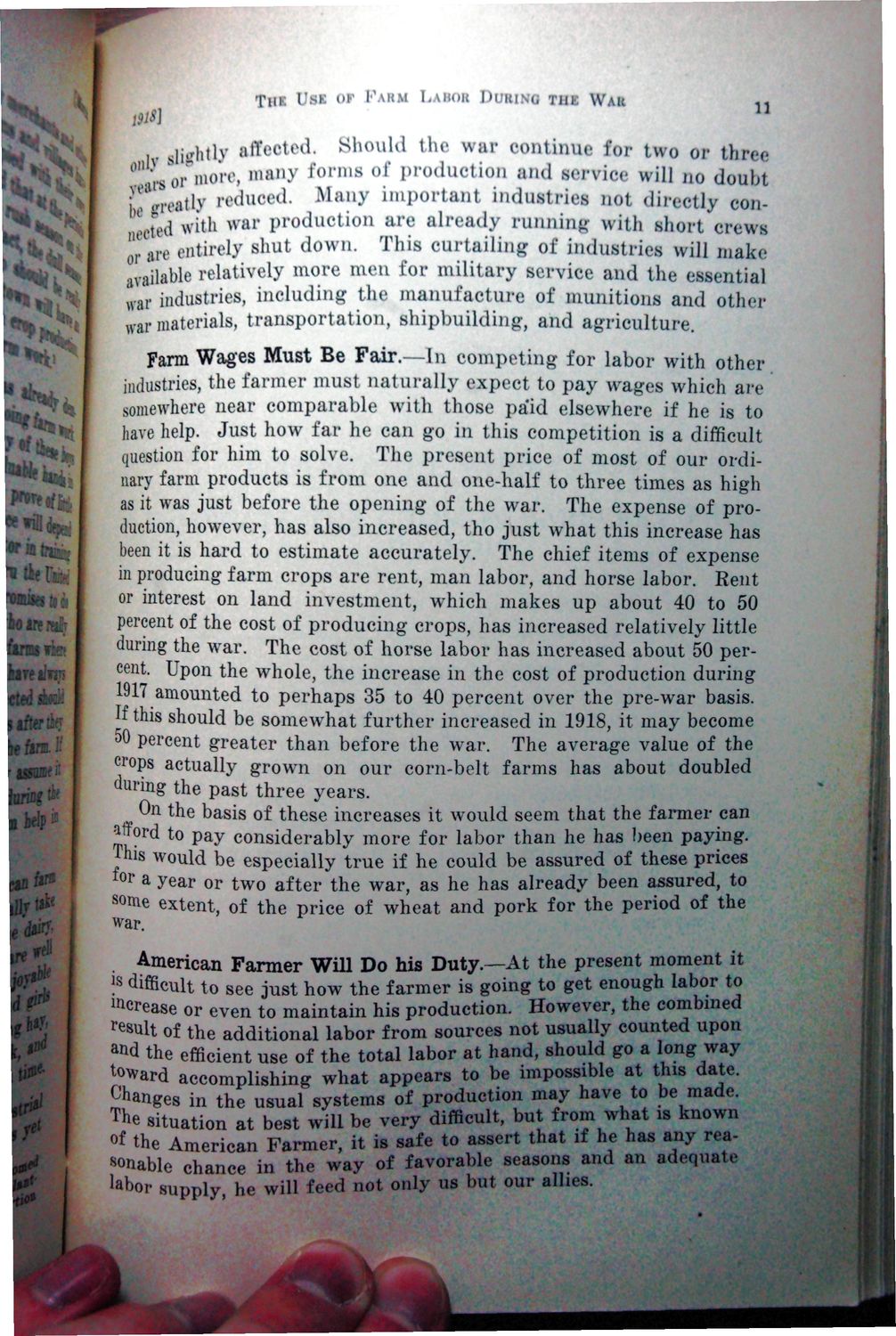| |
| |
Caption: War Publications - WWI Compilation 1923 - Article 28
This is a reduced-resolution page image for fast online browsing.

EXTRACTED TEXT FROM PAGE:
T H I U S I OF FARM LABOR DURING THE WAR ,4 U tilt] available wa r industries, including the manufacture of munitions and other war materials, transportation, shipbuilding, and agriculture. Farm Wages Must Be Fair.—In competing for labor with other industries, the farmer must naturally expect to pay wages which are somewhere near comparable with those paid elsewhere if he is to have help. Just how far he can go in this competition is a difficult The present price of most of our ordiijuestion for him to solve. nary farm products is from one and one-half to three times as high as it was just before the opening of the war. The expense of production, however, has also increased, tho just what this increase has been it is hard to estimate accurately. The chief items of expense in producing farm crops are rent, man labor, and horse labor. Rent or interest on land investment, which makes up about 40 to 50 percent of the cost of producing crops, has increased relatively little during the war. The cost of horse labor has increased about 50 percent. Upon the whole, the increase in the cost of production during 1917 amounted to perhaps 35 to 40 percent over the pre-war basis, if this should be somewhat further increased in 1918, it may become 50 percent greater than before the war. The average value of the cr ops actually grown on our corn-belt farms has about doubled during the past three years. On the basis of these increases it would seem that the farmer can afford to pay considerably more for labor than he has been paying. This would be especially true if he could be assured of these prices for a year or two after the war, as he has already been assured, to s °me extent, of the price of wheat and pork for the period of the war. . American Farmer Will Do his Duty.—At the present moment it s ! difficult to see just how the farmer is going to get enough labor to ^crease or even to maintain his production. However, the combined re sult of the additional labor from sources not usually counted upon a *d the efficient use of the total labor at hand, should go a long way t( >ward accomplishing what appears to be impossible at this date. Ganges in the usual systems of production may have to be made. The situation at best will be very difficult, but from what is known of the American Farmer, it is safe to assert that if he has any read a b l e chance in the way of favorable seasons and an adequate •abor supply, he will feed not only us but our allies.
| |